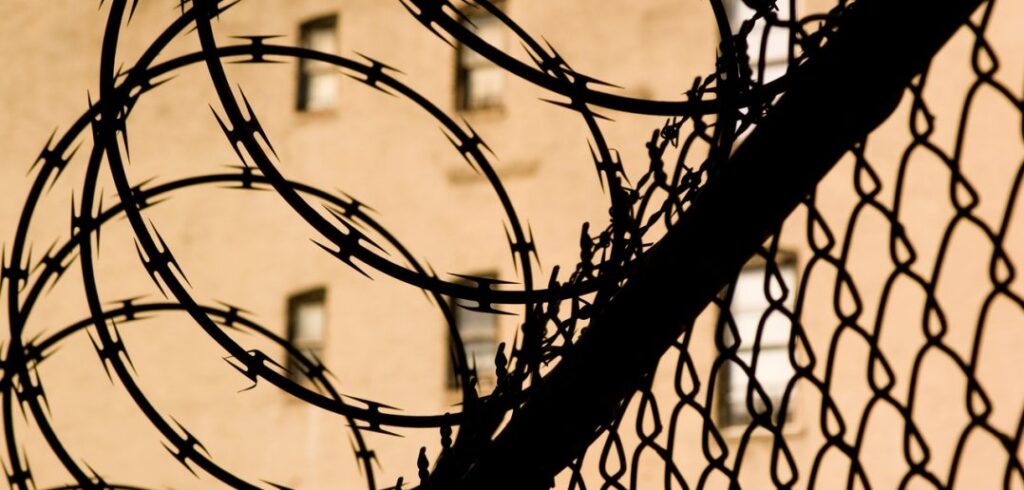On September 30, Fordham Law students attended a virtual panel event about the ongoing crisis at Rikers Island. The event was organized by Advocates for the Incarcerated (AFTI), a Fordham Law student advocacy group run out of the school’s Public Interest Resource Center.
Deteriorating conditions at the correctional facility have garnered headlines in recent weeks, but little has changed for incarcerated people, advocates say. On September 19, a 42-year-old man died while in custody at Rikers bringing the total number of deaths to 11 this year—at least five of which were determined to be suicides.
State Senator Alessandra Biaggi ’12, who represents the district Rikers Island is in, spoke about the appalling conditions she witnessed during a tour last month. “Even from just the first step into this facility, you could see from the get-go that these were just inhumane conditions,” said Biaggi. She described garbage and feces covering the floor, an infestation of lice and bugs, grossly overcrowded cells, and men sleeping on floors without mattresses.
Even the most basic needs were not being met, said Biaggi, with incarcerated people not receiving adequate food and water, and not being able to access medical attention. “I think that for me, it was clear upon the first interaction that it’s a humanitarian crisis,” she said.
What Role Future Lawyers Can Play
State Assemblymember Emily Gallagher also addressed the law students in attendance and spoke about what role lawyers can play in serving incarcerated people. “A big part of what clued us into what was going on were lawyers who were coming to us and were asking us, begging us, to come with them [to Riker’s]and insisting that we do this together,” Gallagher said. “So lawyers actually have a really huge role to play in this as well.”
The panel also included testimony from someone who had experienced incarceration directly —Darren Mack, who was charged as an adult at the age of 17 and spent 19 months at Rikers. He is now an advocate and organizer for Freedom Agenda at the Urban Justice Center.
“In the reports we got back, it’s the worst I’ve ever heard before. This is a human rights crisis that’s happening right in front of our eyes,” Mack said. “Self-harm has exploded, COVID-19 is resurgent, people are not getting access to food, medical care. And the public will never really know the full emotional trauma and dehumanization that occurs there unless they actually experienced it,” he added.
Solutions Do Exist
Closing Rikers Island, an idea that Mayor de Blasio and City Council have endorsed, is the ultimate goal, panelists say. But in the meantime, lawmakers and advocates are making progress in other ways.
Gallagher said she is working on two bills that would help address the ongoing crisis at Rikers including one bill that clarifies the human rights of those being held in jails. Another bill would add six new members—including formerly incarcerated people—to the State Commission of Corrections.
Biaggi also recommended that de Blasio enact the Early Release 6-A program, which would allow those sentenced to less than one year to serve the remainder of their sentence at home. She also advocated for bail reform and releasing those who are in jail for technical parole violation.
“We hope those who attended the event use the information they learned to take affirmative steps in doing what they can to contribute to ending this humanitarian crisis,” said Aleezah Merali ’23, co-president of AFTI.
The road towards addressing the issues facing Rikers will not be an easy one and coordinated effort will be needed, panelists said. “It’s not a matter of just getting a court order. We’re going to need legislative help. We’re going to need the activists in the streets, we’re going to need organizing,” said Robert Quackenbush, a staff attorney at The Legal Aid Society Prisoners’ Rights Project. “We just need a kind of basic return to humanity.”

